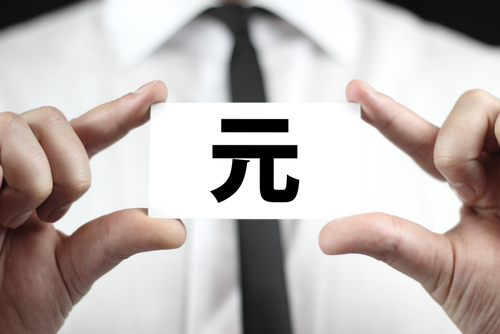US Warns China On Yuan Intervention, Declines To Name It A “Currency Manipulator”
Please note that we are not authorised to provide any investment advice. The content on this page is for information purposes only.
The U.S. Treasury on Tuesday criticised China for resuming intervention-esque efforts to control the value of the yuan, but stopped short once again of labeling the country as a “currency manipulator” despite the yuan falling to its lowest level against the dollar in more than a year.
The U.S. Treasury on Tuesday criticised China for resuming intervention-esque efforts to control the value of the yuan, but stopped short once again of labeling the country as a “currency manipulator” despite the yuan falling to its lowest level against the dollar in more than a year.

In its semiannual report on currencies, the Treasury Department noted that the value of the yuan had suddenly declined significantly this year following several years of steady appreciation – suggesting that an intervention had occurred rather than regular market forces.
“During 2014 . . . the exchange rate has reversed direction, depreciating by a marked 2.68 percent year to date,” said the report.
[quote]“The Chinese authorities have been unwilling to allow an appreciation large enough to bring the currency to market equilibrium,” it added.[/quote]While not directly accusing China of market intervention, the Treasury Department also cited evidence that “China has continued large-scale purchases of foreign exchange in the first quarter of this year, despite having accumulated $3.8 trillion in reserves, which are excessive by any measure.”
The Treasury said that it will continue to closely monitor China’s currency policy and “will press for further policy changes” that would let the rate be determined by the market.
Related: Renminbi Internationalisation Will Be A Long March
Related: Why The Yuan Won’t Replace The USD As The World’s Reserve Currency
Other countries that came in for criticism included Germany and South Korea. South Korea was criticised for both for its current account surplus and exchange rate intervention.
“Korea is one of only a few surplus economies with a significantly larger external surplus now than before the crisis,” the Treasury said.
“Although Korea does not publish data on its foreign exchange intervention, during the second half of 2013 the Korean authorities are believed to have intervened to limit the pace of won appreciation,” they wrote.
Germany on the other hand was cited for its persistently high trade surplus, which the Treasury had blamed in the past for a weak eurozone recovery.
Related: EU To Investigate If Germany’s Trade Surplus Is Harming European Economy
Related: US Treasury Says Germany Is Hurting World Economy
“Germany’s anaemic pace of domestic demand growth and dependence on exports have hampered rebalancing at a time when many other euro-area countries have been under severe pressure to curb demand and compress imports in order to promote adjustment.”
“The net result has been a deflationary bias for the euro area as well as for the world economy,” they said, in their prior report.




